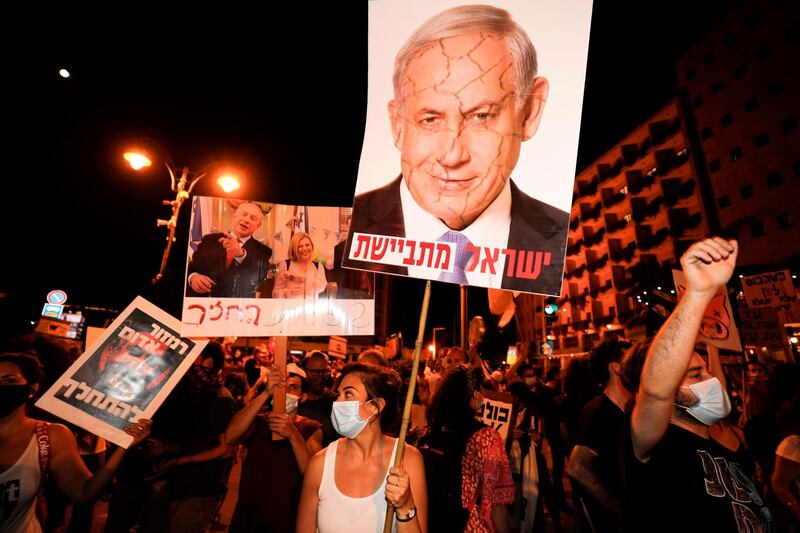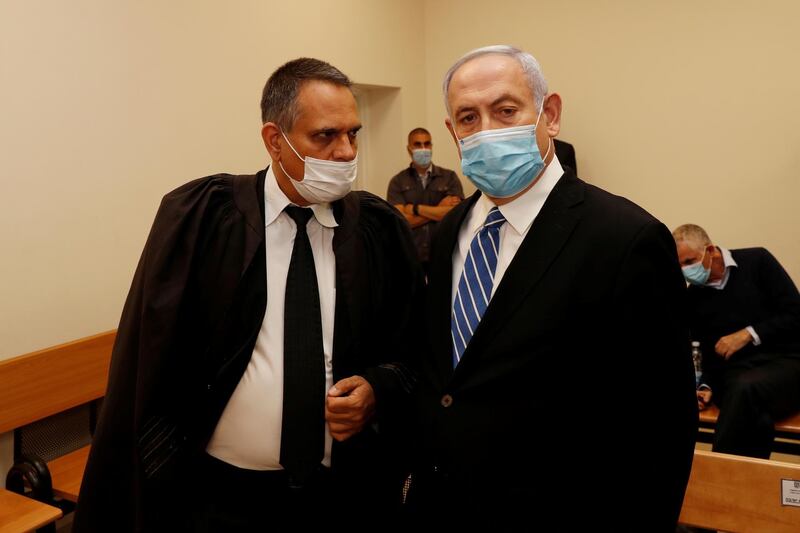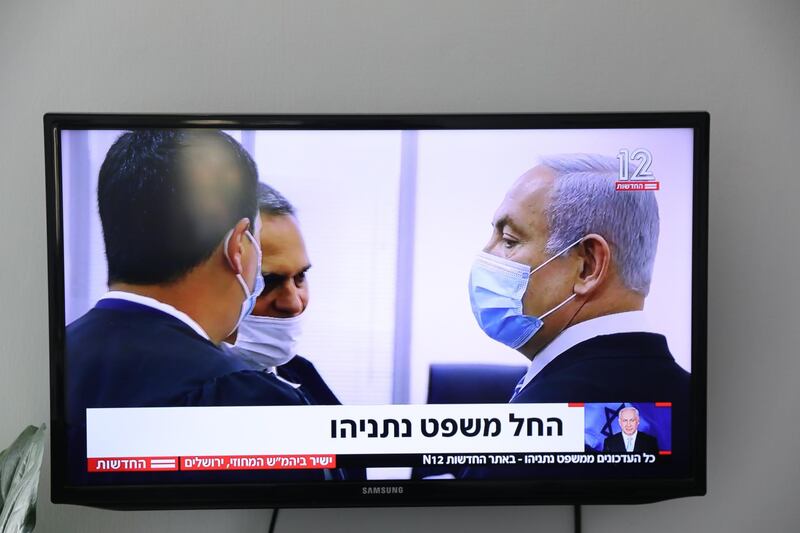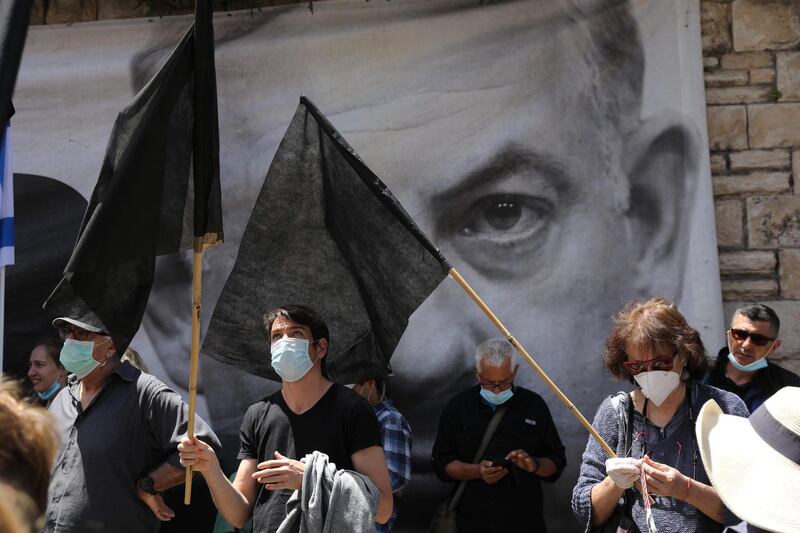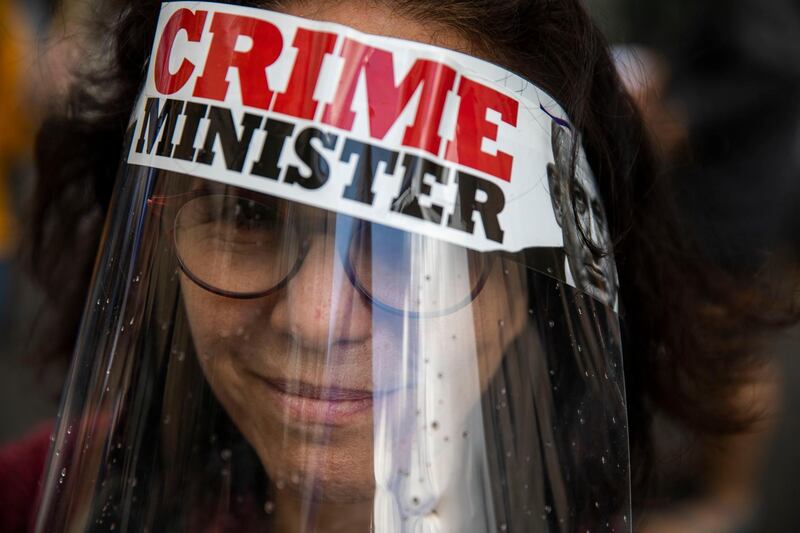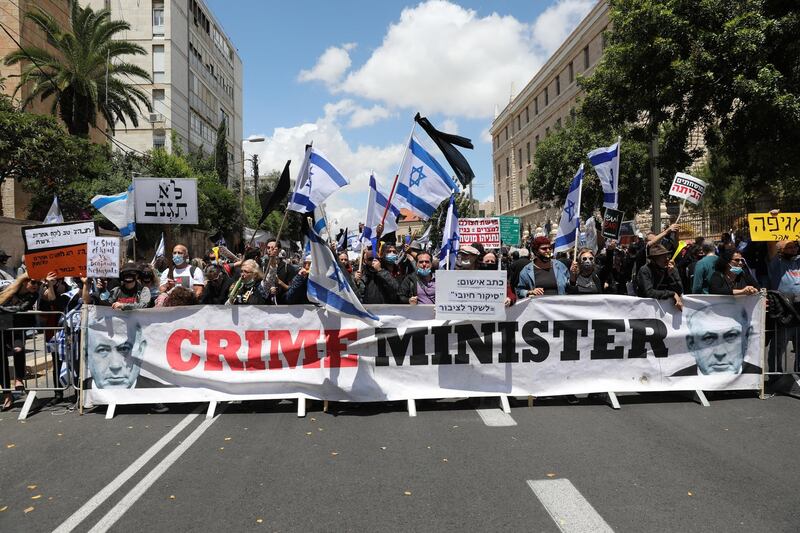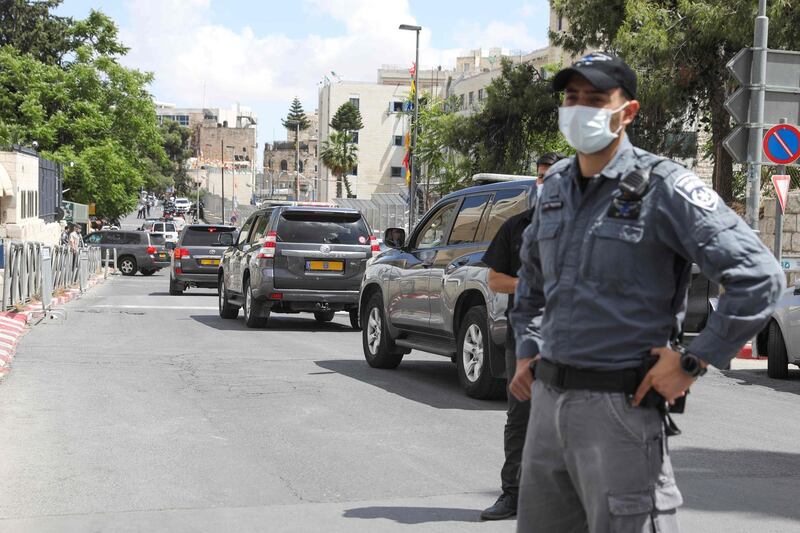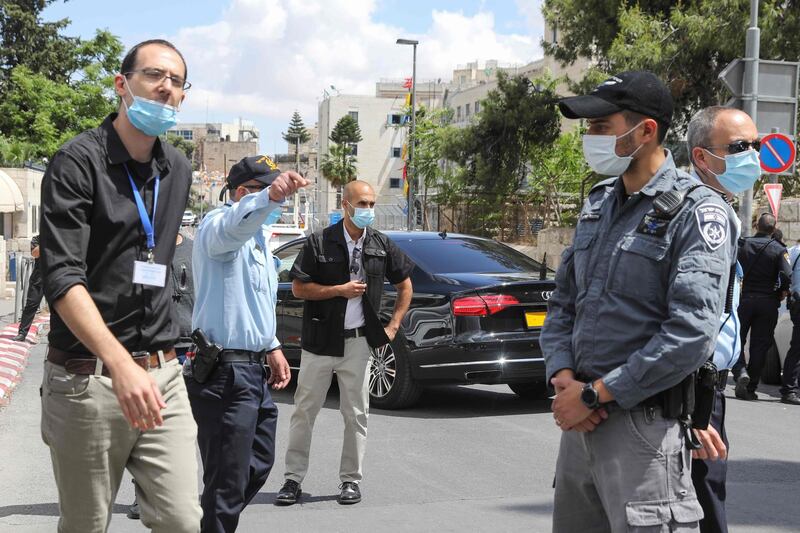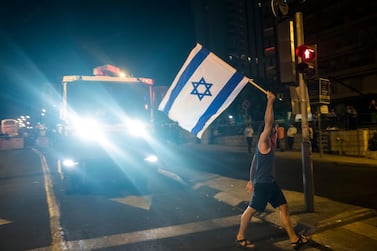Israeli Prime Minister Benjamin Netanyahu railed on Sunday at swelling protests against his rule, saying they were encouraged by a biased media that distorted facts and cheered on the demonstrators.
Mr Netanyahu has faced a wave of protests in recent weeks, with demonstrators calling for the longest-serving, indicted leader to resign and criticising his handling of the coronavirus crisis.
He has described the protesters as "anarchists" and "leftists" who want to topple "a strong right-wing leader".
The protests have largely been peaceful but some have ended with clashes between demonstrators and police, with protesters saying excessive force has been used against them.
In others, small gangs of Netanyahu supporters and people affiliated with far-right groups have assaulted demonstrators.
In a six-minute rant at a meeting of his Cabinet, he slammed the media for "inflaming" the protests and misrepresenting incidents of violence against the protesters.
"There has never been such a distorted mobilisation – I wanted to say Soviet but it has already reached North Korean terms – of the media in favour of the protests," Mr Netanyahu said.
He said the media ignored "wild and unfettered incitement, including daily calls, including the day before yesterday, to murder the prime minister and his family".
Mr Netanyahu said the protests were breeding grounds for the virus that were being allowed to take place with no limits, shutting down streets and neighbourhoods.
He said right-wing protests have not been given such free rein.
Mr Netanyahu condemned violence "from all sides" at the start of his remarks before tearing into the media, which he has long regarded as hostile toward him.
Also at the Cabinet meeting, Israeli Defence Minister Benny Gantz, who is the country's "alternate" prime minister under a power-sharing deal, said the protests must be allowed to take place with protesters protected from violence.
"The right to protest is the lifeblood of democracy and violence is the erosion of the foundation of democracy," Mr Gantz said.
Israeli police have arrested about 20 far-right activists in recent days and said they were on high alert for violence at the demonstrations. Arrests of Netanyahu supporters were reported on Saturday, including a man who left his car in the northern city of Haifa and threw a stone towards a crowd of protesters.
Police said a woman, 63, was slightly hurt.
The demonstrations are organised by a loose-knit network of activist groups.
Some object to Mr Netanyahu remaining in office while he is on trial. He has been charged with fraud, breach of trust and accepting bribes in a series of scandals.
Many carry black flags, the name of the grassroots movement.
Many of the demonstrators, including young unemployed Israelis, accuse Mr Netanyahu of mishandling the coronavirus crisis and the economic damage it has caused.
His son, Yair Netanyahu, was summoned to a Jerusalem court after tweeting the names, addresses and phone numbers of prominent protesters, calling on his followers to demonstrate outside their homes "day and night".
The court granted Yair, 28, an exemption from appearing in court. Protesters said they received threatening calls after the tweet.
